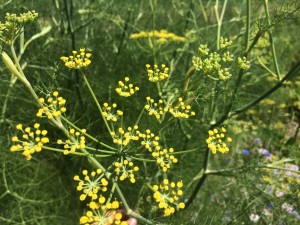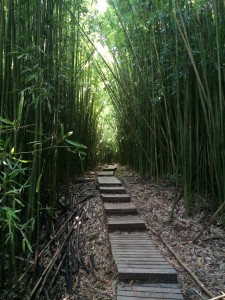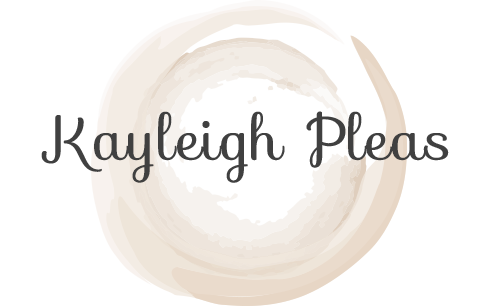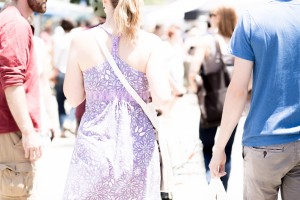The question “Who am I?” rests at the heart of the human experience, manifesting in creative expression, scientific inquiry, and spiritual pursuit. While this most fundamental question can feel overwhelming, when approached with sincere curiosity, it has the power to transform a limited sense of self to limitless possibilities of self. 
According to psychologist Paul Gilbert, self-identity is the process of prioritizing the different potentials within us and linking a sense of “me” to my memory of who I was yesterday and a feeling of consistency in my thoughts, values, behaviors, and emotions. By early adulthood, most of us lock into a stable sense of self, involving a story about who we are, what we are capable of, and how the world works. We spend our days collecting evidence to solidify this familiar sense of “me” – a brain process called the confirmation bias. Too often, the unconscious stories we tell ourselves pale in comparison to our potential. We are so much more dynamic, mysterious, and alive than our well-worn stories would have us believe.
Travel affords the opportunity to call our familiar stories of self into question. Beyond the daily routines and scaffolding that reinforce our habits, we are free to examine whether the repeated thoughts, feelings, and behaviors we have come to call “me” are in fact the “me” we want to be. While many aspects of life are beyond our control, the beliefs we carry with us the moment we roll out of bed powerfully influence our life’s trajectory and outcome. To use an analogy: We are dealt the cards and how we choose to play them is up to us. A recent trip to Croatia afforded just such an opportunity to examine the self I have come to most strong identity with.
 Having no cellular service abroad, I came face-to-face with my mind’s ceaseless desire to abandon the present for “productive” distraction. To use Paul Gilbert’s language, I recognized the habit of prioritizing my potential for “doing” over my potential for “presence.” When life afforded a pause—a coffee break between historical sites, a cab ride to dinner, a quite bench in the shade—the urge to check my e-mail or read a new article would rise like a powerful wave. Without access to cyber land, I was forced to stay present to what was actually happening in the moment – neck wet with sweat, feet soar and hot, belly expanding with breath. I was forced to look up and connect with the life around me – the graceful silhouette of a nearby woman, the sound of shoes against pavement, the sweet smell of fresh croissants. Some moments were uncomfortable, and a pleasant distraction would have been welcome. Yet by staying awake in my senses, the majority of moments eventually gave way to an experience of deep contentment or connectivity.
Having no cellular service abroad, I came face-to-face with my mind’s ceaseless desire to abandon the present for “productive” distraction. To use Paul Gilbert’s language, I recognized the habit of prioritizing my potential for “doing” over my potential for “presence.” When life afforded a pause—a coffee break between historical sites, a cab ride to dinner, a quite bench in the shade—the urge to check my e-mail or read a new article would rise like a powerful wave. Without access to cyber land, I was forced to stay present to what was actually happening in the moment – neck wet with sweat, feet soar and hot, belly expanding with breath. I was forced to look up and connect with the life around me – the graceful silhouette of a nearby woman, the sound of shoes against pavement, the sweet smell of fresh croissants. Some moments were uncomfortable, and a pleasant distraction would have been welcome. Yet by staying awake in my senses, the majority of moments eventually gave way to an experience of deep contentment or connectivity.
In the Buddhist tradition, the term beginner’s mind is used to describe the practice of temporarily setting aside preoccupations and opinions in order to have a direct experience of your experience. Beginner’s mind requires an attitude of openness and sincere curiosity. In these technology-free pauses, I started paying attention with this kind of curiosity. And in paying attention, my body softened and my mind relaxed with what was happening. Nothing needed to be other than it was: My soar feet and the graceful silhouette of the woman sitting next to me existing simultaneously. In these pauses, as I let go of the compulsion to manage and control my experience, to get somewhere other than I was, a gentleness and appreciation for life emerged. 
In our hurried, productivity-driven lives, I fear we lock into a hardened, shallow sense of identity. When we do have a moment of leisure, we are so caught in the habit of distraction that we flee from ourselves, reaching for anything to distract—music, television, planning, surfing the web. Underneath the surface of all our doing, checking, and e-mailing is a story that goes something like this: “There is not enough time. I have to get to the next thing. Right now is not enough.” We move through our days “on our way” to the next moment, never fully present.
Last week during an initial consultation, a client expressed my sentiments exactly: “More than anything,” she said with a look of heartbreak, “I want to recover my softness. I used to feel connected to life and the people around me. I feel hard, callous.” The unspoken and pervasive suffering in our culture is this: In all our productivity and distraction, we abandon not only ourselves, but also each other. The vast mystery of who we are—curious, spontaneous and loving— covered over by a sense of self always “on our way” to the next task.
I don’t have a solution to the dizzying busyness of modern life. What I do have, however, is a desire and intention to feel my life more fully. Considering self-identity is the process of prioritizing the different potentials within us, we can commit to prioritizing presence, gentleness, and wonder over productivity. Since returning home from Croatia, I intentionally stop regularly to look up. Literally. Stop. Lift my head up. Look at what is happening around me. Feel the sensations in my body.
Often what I find is a subtle tightness in my chest and belly—clenching to get to the next moment—and the underlying story that the next moment will somehow contain what this moment is lacking. In just stopping, I am interrupting the collection of unconscious reactions that solidify the busy sense of “me” I have come to know so well, and instead choosing a life of presence. I am in no way there, but I am wholeheartedly practicing. Over the past month of practice, here is what I have discovered:
New York City is filled with stunning architecture, if only I look up and notice. More awe-inspiring than the architecture, however, are the faces. The intricate, beautiful, expressive faces of the millions of people with whom I share the city I call home. When I really look at the faces I pass everyday – the suited businessman on the subway, the worried mother pushing her stroller, the barista dancing behind the bar when she thinks no one is looking, the hunched-backed older woman taking slow steps down the street, kids carrying backpacks the size of their little bodies to school – I can’t help but fall in love with the human spirit. I am humbled by the resilience, kindness, and grace of those around me.
In a society that prioritizes our potential for productivity over our potential for presence, maintaining a connection to our inner life and each other takes commitment. While we might think of strength as conquering a mountain, I have come to notice a subtler, more powerful strength: the greatness of heart required to get through a day and maintain connection – offering a simple smile, an ear to listen, a kind word to comfort. Amidst the fear, competition, and striving that pervades our culture, prioritizing our potential for presence—to really be “here” and notice the good that is unfolding amidst the everyday tasks and challenges—is heroic.
I invite you to experiment with pausing and practicing presence with me.
Stop. Look up. Feel your body. Breathe.
“Who am I?”
I still don’t know. What I do know is this: I feel more joyful, more peaceful, and more inspired when I prioritize presence. Sometimes the present moment feels edgy and uncomfortable, but in staying present and awake in my senses, a softer, kinder, gentler version of myself emerges. Here, I feel connected to you and that is where I want to be.

